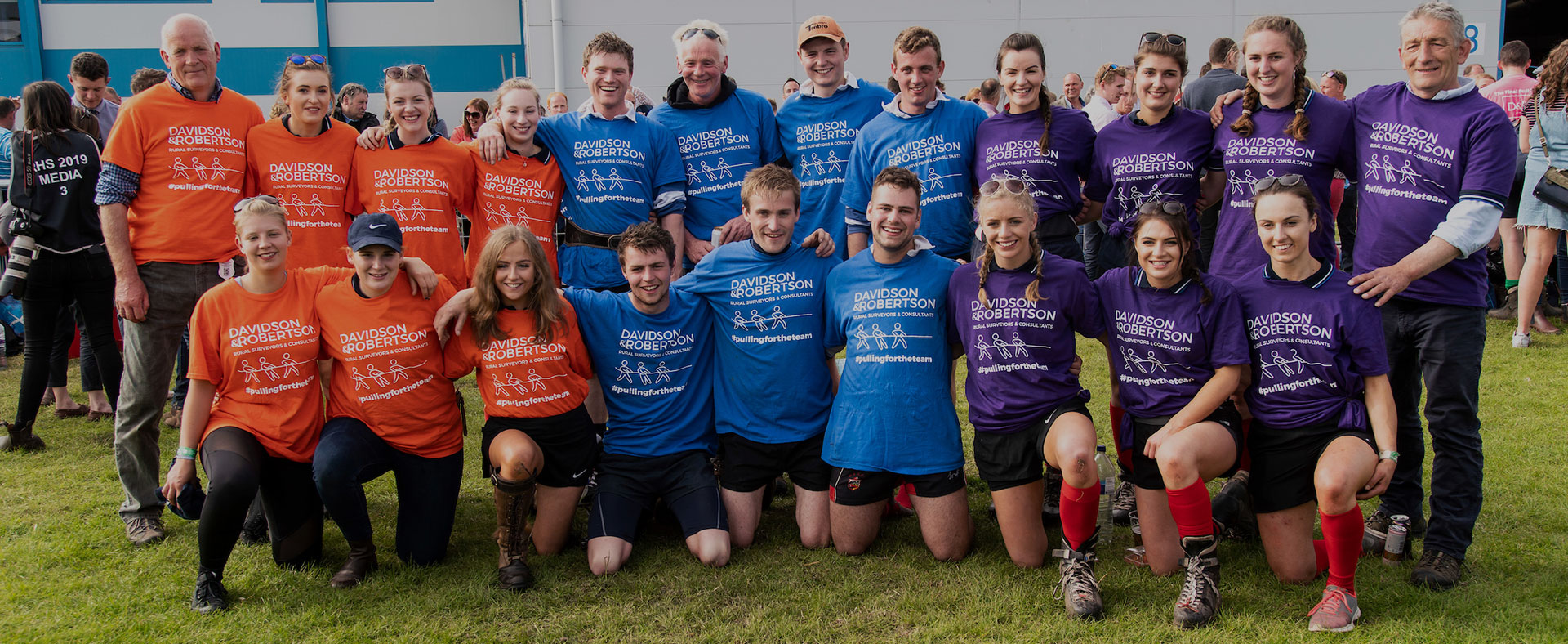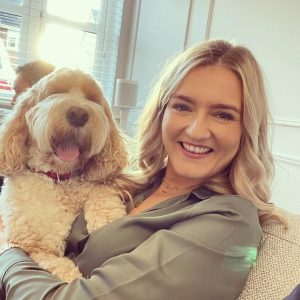
I’m not alone …. Alison Bankier

Past Member
My name is Alison Bankier, I’m 30 years old, I grew up on a dairy farm in North Lanarkshire and I’m now a Home Economics teacher, with an Instagram page for recipes, nutrition and health on the side – @miss_bankier 🙂
I really benefit from reading and hearing about other people’s stories about their mental health as it reminds me I’m not the only one to feel the number of emotions I go through in a day. It also helps me develop compassion for others and helps me to understand that everyone’s journey and perspective on life is different. Everyone has mental health. Not everyone has a mental illness.
Farming is traditionally an occupation in which you may develop a stiff upper lip, a ‘head down get on with it’ attitude and often partake in the facade of keeping up appearances. Work hard, keep busy and ‘the only way is through’ are some of the common phrases in the industry and they are passed down through the generations. This work ethic is admirable to many and of course, essential in many situations. However, this outlook may not help anyone facing a mental health crisis. I believe it could be one of the reasons suicide rates are as scarily high as they are and why the Are Ewe Okay campaign is so refreshing and important in farming.
I was brought up with this work ethic and so I don’t know how my Dad would have responded to the news that I was prescribed antidepressant medication in 2014. For those of you who don’t know, my Dad, Willie, spent a lifetime on medication for his physical health, mainly kidney failure from a young age. He battled throughout his life with circumstances out-with his control but he always remained upbeat and was in his wellies and boiler suit whenever he had the chance. Maybe work was a goal he had or like many in agriculture, was just a passion he loved doing. But I wish he had opened up to us more about his struggles. Let us learn how he really did it. Getting up in the morning when his body told him no. Just like how my mind tells me no so often. It was frowned upon, and still is in many families, to open up about how you feel and discuss how the words and actions of others can affect us. Traditionally in farming, families will gather around the kitchen table and eat meals together. Which is the perfect opportunity to discuss what we did with our day. But wouldn’t it be more beneficial to discuss how our days made us feel? Learning to recognise different emotions and even be able to label them is a skill in which everyone would benefit from in learning to manage their mental health.
I’ve found it incredibly difficult to admit I needed help. I think because it’s mainly an invisible condition and when you compare it to what Dad went through, it didn’t seem as important. I felt guilty for sharing my struggles and regularly felt like I was just “too sensitive” compared to everyone else. I would cry a lot and didn’t know how to express my emotions properly and this came through as anger and frustration in many situations. I also had the idea that “there’s always someone else worse off” in my head which totally invalidated what I was feeling, like my feelings didn’t matter because there was someone else who actually earned the right to be depressed. The idea of “someone else has it worse” is useful in practising gratitude for what you do have in life, but when someone is experiencing intense emotions and a low mood, and often don’t know why, it can add a great deal of shame, which isn’t helpful to their situation. Even after my Dad passed away in 2013, I still felt like I should be able to cope and carry on as normal. So when I finally felt so low that I started medication and started to notice the impact on my mood, it made me realise that I should have started taking them years before! However, I still felt shame associated with taking medication for a mental illness and I strived to one day come off them completely. As soon as I had a period of time where I felt content I would stop taking them until the next breakdown and that breakdown usually involved alcohol…
As with many Young Farmers clubs, part of the experience is attending dances and with that, comes the dreaded drink. I felt a huge pressure to fit in, as the majority of people drank at these events. I started Young Farmers later in age than most and a lot of friendships had already formed. Alcohol made me so much more confident and at the time, made me feel good. It was a complete release from any mixed emotions I had when I was sober. But I’m sure many of you will know what I’m about to write about next… the hangover! Because most people experience a hangover the day after a night out; the thirst, the lethargy and general ‘can’t be bothered to move’ feeling! However with someone experiencing a mental illness, alcohol can dramatise symptoms such as the fear that everyone hates you and it feels like you need to hide away and not speak to anyone for days. I’ve even had hangovers that make me feel suicidal. “The Fear” as it’s so affectionately named, is made out to be a joke amongst friends but it truly can break you. And so, over the years, I’ve had to try and reduce the instances of drinking (with great difficulty as many will understand and to the complete confusion of my mother), which brought along with it social anxiety as I felt the sober odd one out or awkward when everyone around me seemed so confident. Reducing the instances of drinking meant that I had to remove myself from situations where I would be tempted which then meant I said no to social events, which in turn, made me more depressed that I couldn’t be “normal” and included like everyone else!! I suffered this “self-inflicted” (again, as my mum would say!) rollercoaster for years before recognising exactly what caused it. It sounds daft now as it was so obvious, but getting in touch with your emotions takes practice and with that, takes time. I just wish I had the environment and understanding from society to open up about my struggles and have the support like I have now, to make the positive changes in my life earlier. Folk are not mind readers. They don’t know how you feel unless you tell them. But creating an environment in which others feel like they can confidently open up and tell you is essential.
There is a societal assumption that people who have depression lie in bed all day, every day with the curtains shut. Some days I do but not always. Depression does not mean I’m in a sad mood every day. Although some weeks it can be and can feel like never ending. Depression does not mean I don’t see friends or leave my house. But a lot of the time I choose to spend alone so I don’t burden them with my emotions. Some people like me sleep a lot and nap as the only way to switch off an overactive brain. This does not mean they’re lazy, they’re just exhausted from pretending to be fine all day. Some people lose their appetite or find comfort in eating more than their body physically requires. This does not mean they are greedy. I have the constant fear of failure but often no urge to be productive. I want to be sociable but often hate socialising. I often want to be alone but don’t want to feel lonely. In my worst phases, I get so mentally drained, irritable and become so disinterested in absolutely everything and everyone in my life. It’s an overwhelming condition in which opening up to others can be incredibly scary. It’s not something you can ignore or snap out of. Hearing the words “cheer up” or “be happy” is so ineffective and patronising. The last thing someone who is sad needs, is for someone to judge their feelings as pointless and unappealing. It is such a complex condition and often very much misunderstood by those who are lucky enough to not be affected. You don’t have to understand the illness completely but you can be more open to learning about what it looks like and feels like for different people.
After spending a significant amount of time alone during the pandemic (and in farming in general) many people suffered from isolation and loneliness. Getting back to “normality” was welcomed by so many extroverts. (The word extrovert can be used to describe a personality that is outgoing and sociable.) You would be daft to say no to a night out after spending months in isolation! But after the world opened up again, social exhaustion was also felt by those who suffer from mental illnesses such as social anxiety. I wouldn’t have said I had social anxiety, because when I’m not feeling symptoms of depression, I’m actually a really confident person. A confident person around people who understand and accept me for who I am, rather than feeling judged by them. That’s all part of recognising emotions within yourself and learning to respond appropriately. It’s helped me realise that it’s okay that not everyone wants to be sociable all the time and involved in absolutely everything. Connection and spending time with people is important in managing your mental health, but ensuring you can recognise if it’s actually causing you issues.
I still experience a huge amount of guilt for being the way I am. Guilt about the perceived burden I am on family and friends. Ashamed for feeling like I’m the only one who can’t cope with daily life. The only one cries on the way to and from work and often has a 5 minute greet in the school toilets hoping my pupils will be nicer to me in the afternoon! But of course, it’s all in my head. I was and never am alone. There are so many people who struggle every day with the thoughts in their head and we all need to be more accepting and open to understanding life from other people’s perspective. I’ve learned that doing “your best” doesn’t mean pushing yourself to your breaking point. “Your best” means the best you can do while being the best version of you. Get enough sleep, give yourself breaks, listen to your limits and “your best” is better when you’re happy and healthy.
Often the best way to understand a friend or family member’s depression is to ask them about it. If they don’t want to talk about it they will tell you, but for some, actually acknowledging what they are going through can be so empowering. I feel instant relief when I talk about how I feel with someone I trust. They don’t have to provide advice or “say the right thing”, they only need to show they are listening for me to feel supported. Recognising the signs of depression in someone you love can help you to support them and look out for warning signs that they may be going to harm themself. Try not to judge someone with depression, seeing the person beneath the illness and allow them a voice.
I don’t know how my Dad would have reacted to the news that I was diagnosed with depression. But I do know that he would have listened to me and made me feel heard, alongside my incredibly supportive mum, brother and sister. And maybe even proud of what we’ve all managed to get through without him there cheering us on.
